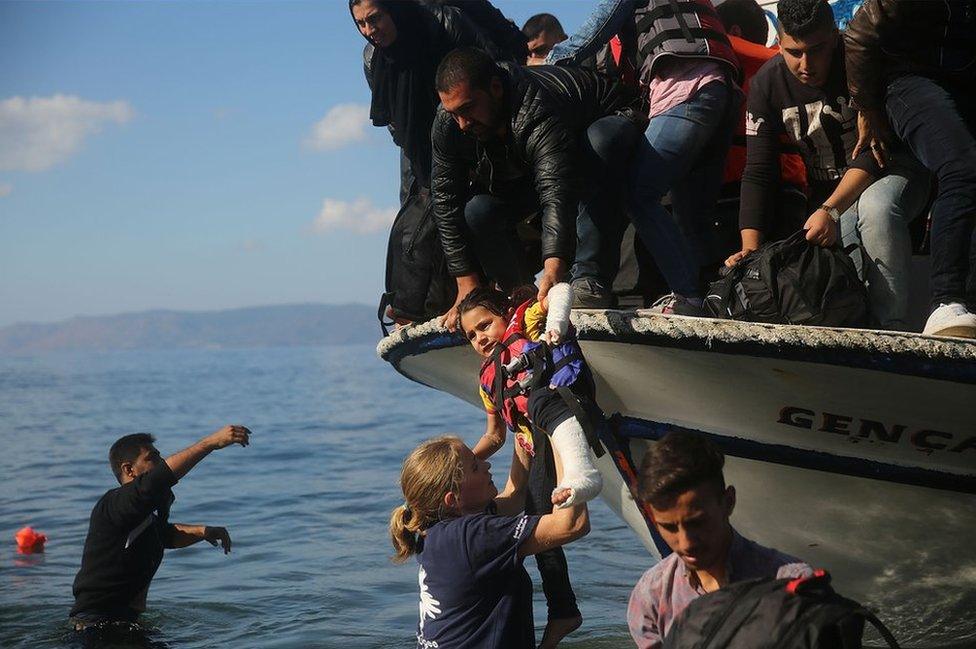Five migrant stories from Greece: The pull of Europe
- Published

An increasing number of people have tried to reach Lesbos before winter
Almost 600,000 refugees and migrants have made their way across the Mediterranean to Europe this year and the majority of those have landed on the Greek islands closest to Turkey.
Migration experts say the numbers arriving on the islands have surged recently to as many as 7,000 a day, external, trying to reach Europe before the weather worsens.
The biggest numbers arriving in Greece are from Syria, Afghanistan, Iraq and Pakistan and some of the new arrivals on the island of Lesbos told BBC News their stories.

Ali Fellah, 24, Iraq
Ali came from Najaf with his wife and son, fleeing the advance of Islamic State (IS) militants and the breakdown of services such as basic drinking water. "I'm not thinking about me," he says, "it's about the future for my son."
Ali Fellah, 24, from Iraq: ''People could see no future''

Sara Arbini, 40, Syria
Sara came to Lesbos with her two sons from the Damascus suburb of Ghouta, because life there was becoming impossible and she was unable to find the medicines she needed.
"It's like we went back 200 years", she says.
Her husband is still in Syria.
Sara Arbini, 40, from Syria: "It just kept getting worse"

Ali Nyazi, 21, Afghanistan
Ali fled Kunduz when the Taliban recently took control of the city, travelling via Iran to Turkey.
He has no idea of his eventual destination but says if he can find eke out a living somewhere in Europe, that is where he will stay.
Ali Nyazi, 21, from Afghanistan: ''The Taliban came to Kunduz''

Ahmed Umar, 20, Somalia
Ahmed says a combination of violence in Mogadishu and a lack of work and education opportunities prompted him to leave.
Having already completed a long journey overland to Turkey, he says his ultimate destination is Germany.
Ahmed Umar, 20, from Somalia: ''There are many problems in Mogadishu''

Ali Khan, 23, Pakistan
The boat in which Ali arrived had to be rescued by the Greek authorities.
He says he left his home in north-west Pakistan, crossing Iran on his way to Turkey because the Taliban wanted him to join their jihad.
Ali Khan from Pakistan on why he fled to Europe: "I didn't want to join the Taliban"
Video production by Bhasker Solanki and Jim Muir
A note on terminology: The BBC uses the term migrant to refer to all people on the move who have yet to complete the legal process of claiming asylum. This group includes people fleeing war-torn countries such as Syria, who are likely to be granted refugee status, as well as people who are seeking jobs and better lives, who governments are likely to rule are economic migrants.